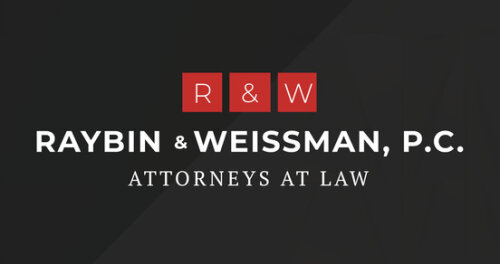Best Birth Injury Lawyers in Nashville
Share your needs with us, get contacted by law firms.
Free. Takes 2 min.
List of the best lawyers in Nashville, United States
About Birth Injury Law in Nashville, United States
Birth injury law covers legal claims that arise when a baby is harmed during pregnancy, labor, delivery, or immediately after birth. These injuries can be caused by complications of the birth process itself, preexisting maternal or fetal conditions, or by negligent medical care. Common birth injuries include brain injury from lack of oxygen, cerebral palsy, brachial plexus injuries, skull or bone fractures, and damage from improper use of delivery tools such as forceps or vacuum extractors.
In Nashville, as elsewhere in Tennessee, birth-injury claims are usually brought as medical malpractice or personal-injury lawsuits against hospitals, physicians, nurses, or other health care providers. The goal of these claims is to establish that substandard care caused the injury and to obtain compensation for medical costs, long-term care, therapy, pain and suffering, and other damages that result from the injury.
Why You May Need a Lawyer
Birth-injury cases are often complex, medically detailed, and time-sensitive. You may need a lawyer if any of the following apply:
- Your child suffered a serious injury around the time of birth and medical records show complications such as fetal distress, abnormal heart rate, shoulder dystocia, prolonged labor, or emergency interventions.
- Health care providers gave inconsistent explanations of what happened, or you believe standard procedures were not followed.
- You are being asked to sign documents or give formal statements to an insurance company about the circumstances of the injury.
- You need help obtaining and reviewing medical records, imaging, and other evidence that may be difficult to access without legal assistance.
- The injury is likely to require long-term care, special education, or adaptive equipment, and you need to plan for future costs and support.
- You want to know whether a claim is viable, what your legal options are, and how damages are calculated.
Local Laws Overview
Several legal and procedural rules in Tennessee are particularly relevant to birth-injury claims in Nashville:
- Statutes of limitations and prompt action - Time limits for filing lawsuits in Tennessee can be strict. Different deadlines may apply depending on whether the claim is a general personal-injury action or a medical-malpractice action. Because deadlines vary with circumstances, it is important to consult a lawyer promptly to protect your right to sue.
- Requirement for expert support - Birth-injury and medical-malpractice claims usually require medical expert opinion to show that the care fell below accepted standards and directly caused the injury. Tennessee procedures often require expert affidavits or certificates that meet statutory or court-imposed standards.
- Notice and procedural rules - If a claim involves a government-owned hospital or employees of a public agency, there may be special notice-of-claim requirements and shorter deadlines. Counsel can confirm whether any notice steps are required in your case.
- Comparative fault - Tennessee applies principles of comparative fault. If fault by multiple parties is at issue, the negligence of a parent or another party can affect recoverable damages. An experienced lawyer can advise how comparative fault might apply in your situation.
- Damages and compensation - Victims of birth injury may recover economic damages such as past and future medical bills, therapy, assistive devices, and lost income. Non-economic damages like pain and suffering and loss of enjoyment of life may also be available. Certain caps or limits can apply in some medical-malpractice contexts; you should get local legal advice about how these rules might affect your claim.
Frequently Asked Questions
What counts as a birth injury that could lead to a legal claim?
A birth injury that could support a legal claim is an injury caused by medical error or negligence during pregnancy, labor, delivery, or immediately after birth. Examples include brain injury from oxygen deprivation, severe cerebral palsy caused by delayed intervention, brachial plexus injuries from improper delivery techniques, and injuries from improper use of instruments. Not all birth injuries are the result of negligence; an investigation is needed to determine whether the injury resulted from substandard care.
How long do I have to file a birth-injury lawsuit in Tennessee?
Time limits vary by type of claim and circumstances. Tennessee law imposes statutes of limitations for personal-injury and medical-malpractice claims that can be relatively short. In some situations, the clock starts on the date of injury; in others, it may start when the injury was or should have been discovered. Because missing a deadline can bar a claim, contact an attorney promptly to learn the specific time limit for your case.
Do I need an expert to prove a birth-injury claim?
Yes. Birth-injury cases almost always require testimony from qualified medical experts who can explain the applicable standard of care, how the care fell short, and how that breach caused the injury. The expert’s opinion is usually essential to establish liability in medical-malpractice litigation.
How do I get my child’s medical records and why are they important?
Medical records can be requested directly from the hospital, physician, or clinic where care was provided. Records are essential evidence showing labor events, fetal monitoring strips, delivery notes, medication administration, and postnatal care. If providers are reluctant to release records or if records are incomplete, a lawyer can assist by making formal requests, issuing subpoenas, and preserving evidence.
What types of compensation can families seek after a birth injury?
Families may seek economic damages such as past and future medical expenses, rehabilitation and therapy costs, specialized education and vocational services, home modifications, and lost earning capacity. Non-economic damages can include pain and suffering, emotional distress, and loss of enjoyment of life. In rare circumstances, punitive damages may be sought if the conduct was egregious. The exact recoverable damages depend on case facts and governing law.
What if the hospital or doctor offers a settlement early on?
Early settlement offers can be tempting, but they may not fully account for long-term needs and costs associated with a serious birth injury. Before accepting any offer, families should consult a lawyer who can evaluate whether the amount covers projected future medical care, therapy, adaptive equipment, and other long-term expenses. Lawyers can also negotiate on your behalf to seek a fair resolution.
Can I pursue a claim if I signed forms at the hospital after delivery?
Signing routine hospital forms does not automatically waive your right to pursue a malpractice claim. However, some agreements might include arbitration clauses or other provisions that affect how disputes are resolved. If you signed any documents, show them to an attorney who can explain their impact and advise on next steps.
Will a birth-injury lawsuit be automatic proof of medical negligence?
No. Filing a lawsuit starts the legal process, but plaintiffs must prove negligence by showing that a provider breached the applicable standard of care and that the breach caused the injury. The process involves gathering evidence, expert testimony, and legal argument. A claim that results in settlement or verdict is not automatic - it depends on the strength of the proof.
How do courts handle claims that involve long-term care needs for a child?
Courts and parties often use life-care planning and expert cost projections to estimate future medical needs and expenses. Settlement agreements or judgments can include structured payments, lump-sum awards, trusts, or other mechanisms to cover long-term costs. An attorney who handles birth-injury cases can help assemble the necessary experts to estimate future needs and pursue appropriate compensation.
How do I find a qualified birth-injury lawyer in Nashville?
Look for attorneys with experience in medical malpractice and birth-injury cases, trial experience if needed, and a record of handling complex medical evidence and experts. Ask about their experience with cases like yours, how they handle costs and fees, and whether they offer a free initial consultation. Local bar associations and professional referrals can help identify experienced counsel. Meeting with a lawyer will let you evaluate whether they are a good fit for your case.
Additional Resources
Governmental and oversight bodies that may be helpful include the Tennessee Department of Health and the state medical board, which handle licensing and complaints about health care providers. Families can also seek information and support from advocacy and nonprofit organizations focused on birth injury, special needs, and childhood disability services.
Suggested resources to explore in Nashville and Tennessee include local hospital patient-advocacy offices, Tennessee Department of Health, the Tennessee Board of Medical Examiners, disability advocacy groups, and national organizations that provide education on birth injury and long-term care planning. Support groups and family resource centers can also help connect you to therapy, early intervention, and special-education services.
Next Steps
If you believe your child has suffered a birth injury related to medical care, consider the following practical steps:
- Seek and document medical care - Ensure your child receives the immediate medical attention they need. Keep a detailed record of diagnoses, care plans, therapies, and providers.
- Preserve records and evidence - Request copies of all medical records, fetal monitoring strips, operative notes, medication logs, and any imaging or lab results as soon as possible.
- Get second medical opinions - Obtain evaluations from pediatric specialists to assess the injury, prognosis, and likely causes. Independent opinions can be critical for both treatment and legal evaluation.
- Avoid giving recorded statements to insurers without counsel - Insurance adjusters may ask for statements early. Consult a lawyer before providing formal recorded statements or signing releases.
- Contact an experienced birth-injury attorney - An attorney can review records, advise on deadlines and legal options, coordinate medical experts, and help you weigh settlement versus trial. Many birth-injury attorneys offer free initial consultations and work on a contingency-fee basis, which means they are paid only if you recover compensation.
- Consider practical planning - While pursuing legal options, also plan for your child’s medical, educational, and financial needs. Discuss short-term and long-term care options with providers and consider financial tools that legal counsel can help establish if necessary.
Acting promptly helps preserve evidence and protect legal rights. If you are unsure where to start, speak with a qualified Nashville attorney who regularly handles birth-injury and medical-malpractice cases to get clear guidance specific to your situation.
Lawzana helps you find the best lawyers and law firms in Nashville through a curated and pre-screened list of qualified legal professionals. Our platform offers rankings and detailed profiles of attorneys and law firms, allowing you to compare based on practice areas, including Birth Injury, experience, and client feedback.
Each profile includes a description of the firm's areas of practice, client reviews, team members and partners, year of establishment, spoken languages, office locations, contact information, social media presence, and any published articles or resources. Most firms on our platform speak English and are experienced in both local and international legal matters.
Get a quote from top-rated law firms in Nashville, United States — quickly, securely, and without unnecessary hassle.
Disclaimer:
The information provided on this page is for general informational purposes only and does not constitute legal advice. While we strive to ensure the accuracy and relevance of the content, legal information may change over time, and interpretations of the law can vary. You should always consult with a qualified legal professional for advice specific to your situation.
We disclaim all liability for actions taken or not taken based on the content of this page. If you believe any information is incorrect or outdated, please contact us, and we will review and update it where appropriate.









